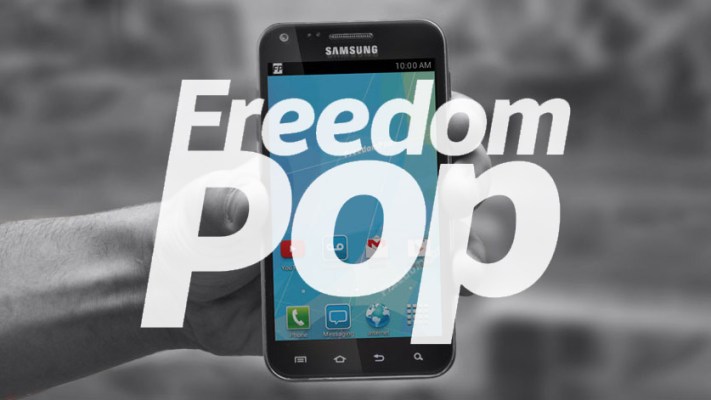FreedomPop is taking another step ahead today in its bid to build out a global mobile business based on free voice, text and data bundles and upselling additional services. Amid months of M&A rumors, the startup has raised another $30 million in funding — money that CEO and co-founder Stephen Stokols says will help FreedomPop grow its businesses independently.
“We had a lot of interest, six bids from carriers and a large tech company, but we ended up turning all of them down,” he says. “It would be premature to sell at this point.” The aim for 18 month-old FreedomPop now is to build a billion-dollar company, and he is already planning to raise another $50 million – $100 million in the next year to do that, if it doesn’t decide to sell then.
This latest Series B round was led by Partech Ventures, with participation from existing backers DCM Capital and Mangrove. (The valuation is not being revealed but my guess is that it is in the low hundreds of millions. We’d heard from a source that a potential acquisition would have been made at a valuation of around $250 million, but an investment would come in at less than that.)
FreedomPop adds that it has also picked up an unnamed strategic investor — not one of the companies that has been trying to buy it, Stokols tells me, but a U.S. company that will help FreedomPop “on the hardware side.” (FreedomPop sells a range of phones and dongles for its services, so this could be about improving how it buys in devices, or this could be someone who will preload the FreedomPop app, for example.)
In any event, the additional investor is likely going to get announced in a few weeks, and could potentially bump up the round size by another $5 million.
This latest round of funding will be spread across both the U.S. and newer international parts of its business. Currently the company is growing its revenues at around 25% each quarter and is projecting to reach Ebitda profitability later this year, with gross service margins currently at around 50%.
Stokols tells me FreedomPop remains on track to have 1 million users in the U.S. by the end of this year, and in the meantime it’s also pressing on in its international efforts. In May, the company selected the UK as its first market to roll out services in Europe, in a SIM-only, bring-your-own-device MVNO partnership with UK carrier Three, along with Jetsetter, a new multi-country roaming plan. There will be another carrier added to the mix, and more markets, soon. (Indeed, Stokols happens to be in the UK this week.)
As we have described before, FreedomPop’s freemium model — giving away bundles of data, voice and text and upselling on extra data, voice minutes, voicemail and other services — is not like that of your average cut-price MVNO.
Most “virtual” operators essentially buy minutes, messages and data in bulk from carriers for their services and then resell these to their customers, which translates into thin margins for those MVNOs. FreedomPop, however, buys only data which it then uses to offer the rest of its services (for example, voice as VoIP). Instead of prebuying in bulk, it negotiates different usage tiers and pays only for what its customers use.
While this is a new approach to the MVNO model, others are already trying to replicate it in some form, for example RingPlus from Sprint.
Interestingly, some of the new investment will be used to beef up one of the areas where FreedomPop has traditionally economized: customer service. FreedomPop doesn’t have a physical retail operation, and most sales occur online.“We acquire customers in the U.S. for 1/100th of what the carriers pay,” Stokols told me last month. He says that its customer acquisition costs are “under $5 where most carriers’ are $380/user.”
Now the company plans to invest to change this: “Part of the investment will be in customer service,” he says. “We have been having a ‘nothing’ customer experience, and now we want to have a positive experience.” He’s not being very specific on what this will entail, but it sounds like FreedomPop will be following the model that it has taken with how it buys data from carriers: “We want our customer service people to be ahead of demand.”
It’s tempting to wonder who might have been trying to buy FreedomPop among those six offers Stokols said the company had. Companies that would have made sense include cable operators that have wanted to grow their mobile customer bases, or carriers that are looking at ways of targeting different consumer tiers or expanding internationally. Equally, tech companies like Microsoft, looking at ways to build out their mobile user base and provide services to rival efforts like Google Fi, could also be in the mix.
As part of this round, Mark Menell from Partech is joining the board.
“We are excited to have FreedomPop as one of the first investments in our new growth equity fund. We believe the company has an incredibly disruptive business model for today’s large and fast-growing global telecoms industry,” he said in a statement. “This is also largely a bet on FreedomPop’s outstanding management team, who we knew we could partner with from the first time we met.”
